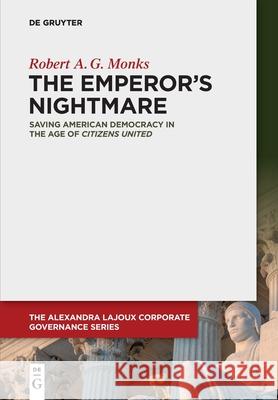The Emperor's Nightmare: Saving American Democracy in the Age of Citizens United » książka
topmenu
The Emperor's Nightmare: Saving American Democracy in the Age of Citizens United
ISBN-13: 9783110696950 / Angielski / Miękka / 2022 / 229 str.
Kategorie:
Kategorie BISAC:
Wydawca:
de Gruyter
Seria wydawnicza:
Język:
Angielski
ISBN-13:
9783110696950
Rok wydania:
2022
Numer serii:
000949995
Ilość stron:
229
Waga:
0.37 kg
Wymiary:
24.41 x 16.99 x 1.24
Oprawa:
Miękka
Wolumenów:
01











